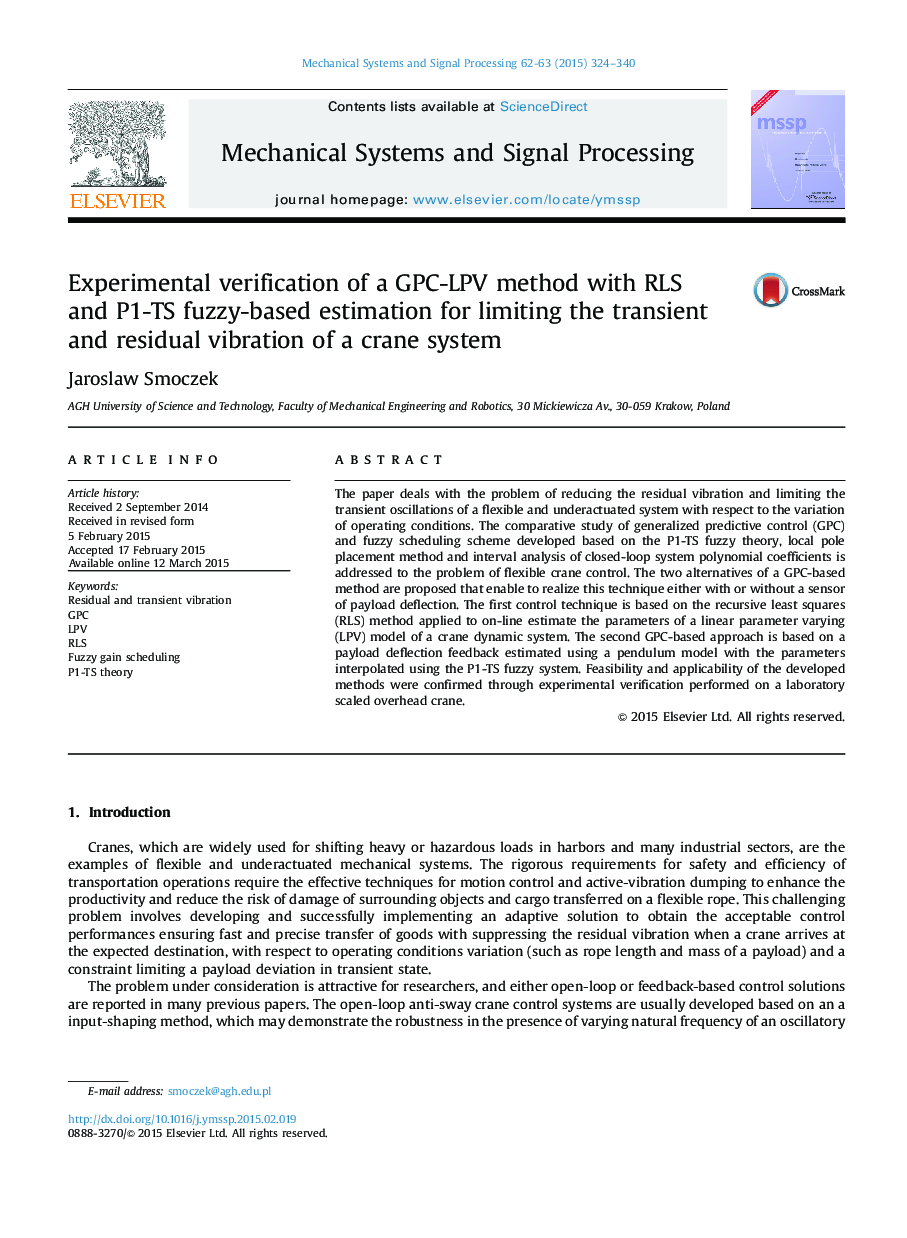| Article ID | Journal | Published Year | Pages | File Type |
|---|---|---|---|---|
| 560154 | Mechanical Systems and Signal Processing | 2015 | 17 Pages |
•The new GPC-LPV approach is proposed for limiting transient and residual oscillations in a flexible crane system.•The RLS method and P1-TS fuzzy-based interpolation are applied in the presence of operating conditions variation.•The GPC-LPV strategy is compared with scheduling control scheme developed through incorporating the P1-TS fuzzy theory.•The control techniques are tested on a laboratory stand with and without a sensor of payload deflection.
The paper deals with the problem of reducing the residual vibration and limiting the transient oscillations of a flexible and underactuated system with respect to the variation of operating conditions. The comparative study of generalized predictive control (GPC) and fuzzy scheduling scheme developed based on the P1-TS fuzzy theory, local pole placement method and interval analysis of closed-loop system polynomial coefficients is addressed to the problem of flexible crane control. The two alternatives of a GPC-based method are proposed that enable to realize this technique either with or without a sensor of payload deflection. The first control technique is based on the recursive least squares (RLS) method applied to on-line estimate the parameters of a linear parameter varying (LPV) model of a crane dynamic system. The second GPC-based approach is based on a payload deflection feedback estimated using a pendulum model with the parameters interpolated using the P1-TS fuzzy system. Feasibility and applicability of the developed methods were confirmed through experimental verification performed on a laboratory scaled overhead crane.
